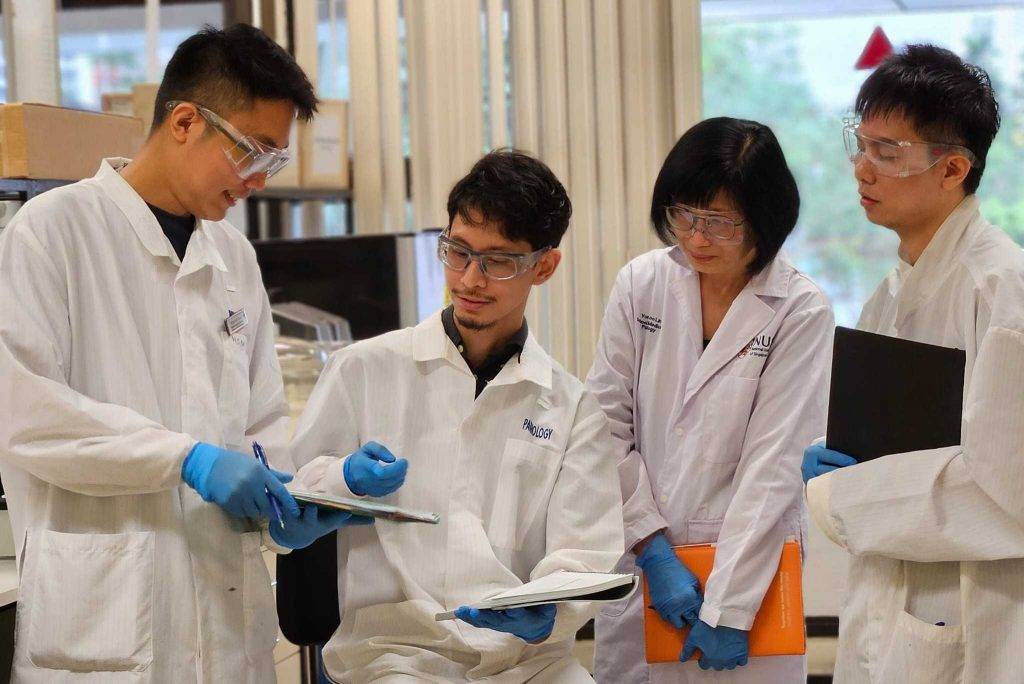A team from the NUS Centre for Cancer Research (N2CR) and the Department of Pathology at the Yong Loo Lin School of Medicine, National University of Singapore (NUS Medicine), has made a significant discovery in the understanding of breast cancer’s resistance to chemotherapy.
The study was led by Research Assistant Professor Leong Sai Mun and spanned over a decade. The team examined a large cohort of breast cancer patients to understand the dynamics of cancer cell survival post-chemotherapy.
Understanding Breast Cancer Relapse
The study highlights that patients with early-stage breast cancer face a 7 to 11 percent chance of relapse within five years of initial treatment. The risk is notably higher in patients with a more advanced stage of cancer. Despite the rigorous application of chemotherapy, designed to eliminate all cancer cells, certain cells evade this treatment, leading to recurrence.
Researchers focused on the role of a small non-coding RNA known as miR-125b in cancer cell survival. They found that cancer cells with high expression of miR-125b engage in a form of cooperative behaviour. The cells would support the survival and growth of neighbouring cancer cells against chemotherapy. This discovery challenges the previously held belief that cancer cells operate solely for individual survival. Instead, it suggests a communal support system within the tumour environment.
Implications for Breast Cancer Treatment
The findings underscore the necessity to develop treatments targeting this cooperative behaviour. Asst Prof Leong Sai Mun pointed out the need for treatments to disrupt the beneficial interactions between the ‘self-sacrificing’ cancer cells and their neighbours. He stated that “Our research has identified these cooperative behaviours between cancer cells, which treatment must target specifically, for them to be destroyed more effectively. For example, treatment methods have to incorporate mechanisms that prevent the surrounding cancer cells from responding and benefitting from the ‘self-sacrificing’ cells.”
Understanding these interactions and targeting them could lead to more effective breast cancer treatments.
Study Details and Collaborations
The research paper was published in Molecular Cancer. It elaborates on the signalling processes of these altruistic cancer cells. It also explains their impact on the tumour’s overall resistance to chemotherapy. The study involved collaboration across various sectors, including NUS Medicine, the NUS Faculty of Science, the National University Hospital (NUH), Nanyang Technological University, Singapore (NTU), and several other local and international institutions.
Conclusion
The study offers new insights into the complex behaviour of cancer cells within tumours and opens up potential new strategies for treatment. By acknowledging and targeting the communal interactions among cancer cells, future therapies might be more adept at preventing relapse and overcoming the innate resistance mechanisms of tumours. The research contributes to a deeper understanding of breast cancer biology. Additionally, it points toward novel approaches to combat this prevalent disease.
Image Caption: Research team members from Asst Prof Leong Sai Mun’s lab, discussing experimental data for their study on cancer cell altruism. (From left to right: PhD student Poon Kok Siong, Dr Muhammad Sufyan, Dr Tan Yuen Peng, Dr Leong Sai Mun)
Image credit: NUS Yong Loo Lin School of Medicine

